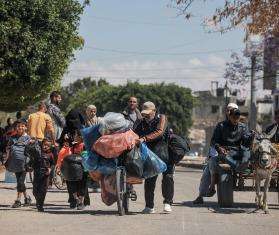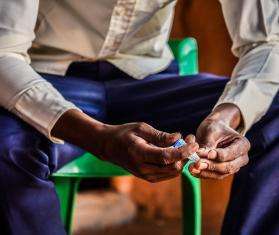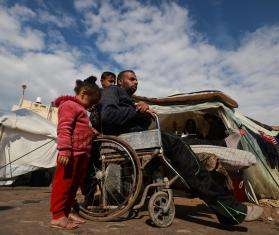JUBA, SOUTH SUDAN/NEW YORK, October 21, 2019—Severe flooding has left thousands of people stranded in inaccessible areas of eastern and northeastern South Sudan, halting medical care in some facilities and worsening an already precarious humanitarian situation, the international medical humanitarian organization Doctors Without Borders/Médecins Sans Frontières (MSF) said today.
MSF health facilities in Pibor and Maban have flooded in recent days, reducing medical services. MSF has launched emergency assessments in these areas and is urging other aid providers to mobilize resources to meet medical and humanitarian needs, especially around Pibor, where people are cut off from assistance.
"We are extremely concerned for the population in outlying areas around Pibor and Maban," said Kim Gielens, MSF head of mission in South Sudan. "Our attention is on urgently conducting aerial and ground assessments to understand the broader impact and to adapt our existing activities in Pibor town to a continuously changing situation. We know that with rising and contaminated water sources comes the risk of outbreaks of deadly waterborne diseases like cholera and hepatitis A. We can also expect a rapid increase in acute watery diarrhea, malaria and respiratory tract infections—three of the biggest killers in South Sudan. International and national organizations must mobilize immediately to ensure provision of food, water, shelter and health care, and ensure adequate attention is given to Pibor where the entire population is now cut off from health care and assistance."
As water levels rose in Pibor in recent days, an MSF hospital and staff compound flooded, forcing the team to reduce lifesaving activities and discharge patients. An MSF team then constructed a tented health facility on higher ground, but this is also expected to flood within days, forcing another relocation.
"As soon as possible, the remaining nine patients in our care in Pibor will be moved to a safer location," said Roderick Embuido, MSF medical coordinator in South Sudan. "With a reinforced team, MSF is urgently working alongside our South Sudanese colleagues in Pibor to again move and set up another temporary tented facility in a higher location."
In Maban, in the northeast of the country, the UN refugee agency UNHCR estimates that more than 200,000 people have been affected by flooding. In MSF's Maban health center, one critically ill child on oxygen support died when flooded generators caused a power cut. The MSF compound also flooded and roads became impassible, temporarily preventing staff from reaching the health center.
MSF is concerned that flooding will increase malnutrition due to the destruction of food stocks and crops. In Maban, patients report that what little food is available in the markets has tripled in price and is no longer affordable.
MSF treats close to 300,000 patients with malaria per year in South Sudan, and it is the most common cause of death for children under five. With people cut off from health care, any increase in malaria cases due to the flooding could have grave consequences.
Additionally, MSF is concerned about the potential for an increase in snakebites, as snakes move in the direction of drier land where people displaced by floods will congregate. MSF often sees the fatal or debilitating consequences of snakebites in Pibor.
MSF has worked in South Sudan since 1983, providing medical care where access to health care and other humanitarian services remain limited. MSF currently works in 15 locations in South Sudan.




